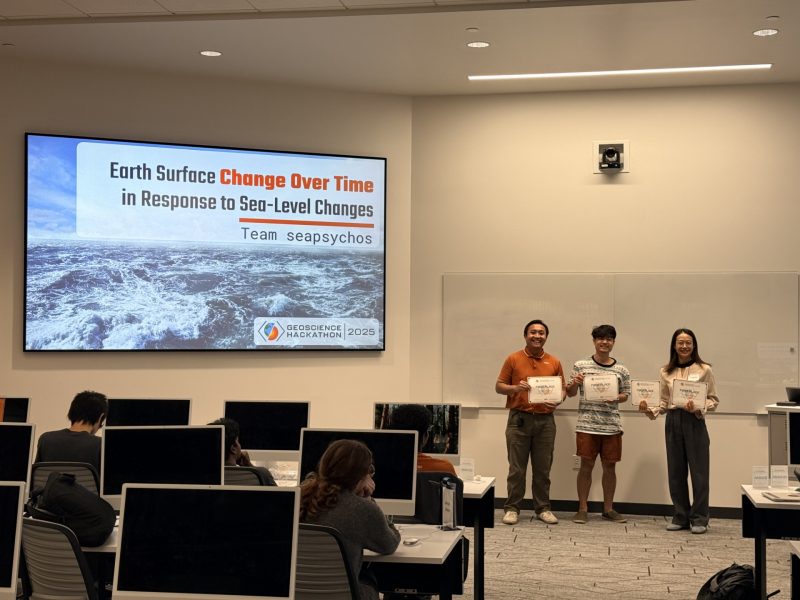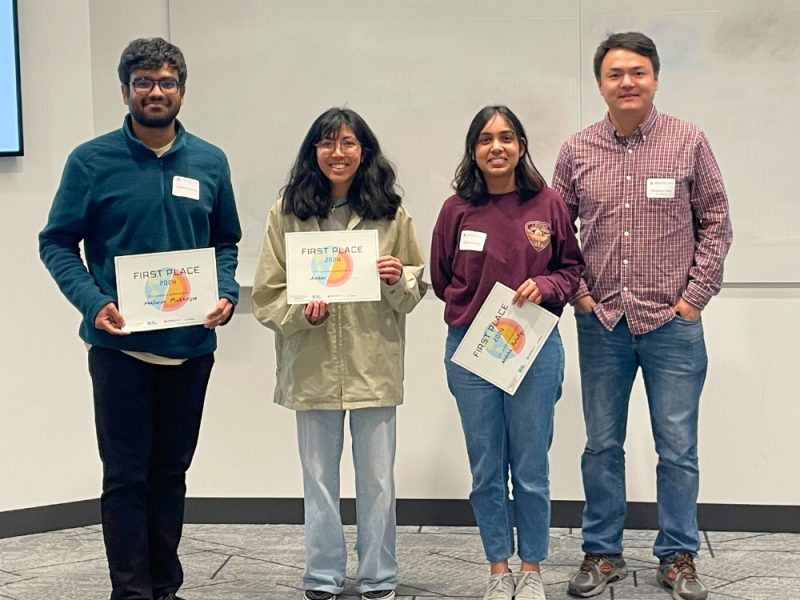Past Hackathons
2025

This year, 20 students worked on creative projects analyzing changes in Earth’s systems that happen both in real-time and over millions of years in geological time.
Projects included an interactive AI tool to find structures on Earth, the evaluation of time shifts for seismic monitoring with coda-wave interferometry, and the generation of seismic data using denoising diffusion probabilistic modeling.
Seven teams participated, with seapsycho taking home the first place prize. They simulated the changes of Earth’s surface with regard to different climate regimes (icehouse vs greenhouse). You can learn more about their project here.
All the teams’ code is publicly accessible. Explore it on the hackathon’s GitHub page.
2024

The theme this year was computational reproducibility.
Researchers often include more than text, graphs, and photos in their papers — they’re also including the code and data behind their results. This allows anyone the ability to extend their research.
However, this practice is relatively new. In the past, the available data was limited to what was published. The hackers in this competition helped fill this missing data gap by reproducing figures from historical articles, writing original code, and extending old computational methods to new approaches that use artificial intelligence.
This code is now publicly accessible thanks to these students’ work. Explore it on the hackathon’s GitHub page.